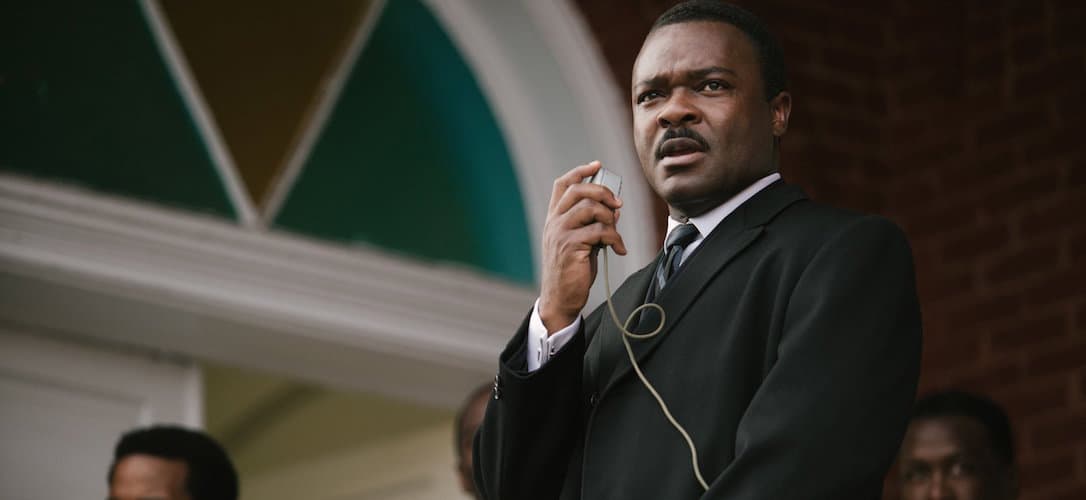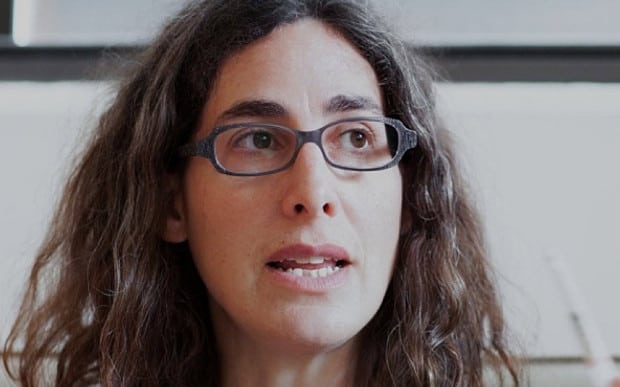
Selma, director Ava Duvernay’s film about the 1965 Voters’ Rights March from Selma to Montgomery, Alabama, has been touted as the best film of the year, thanks in no small part to her direction and David Oyelowo’s inspired performance as Dr. Martin Luther King, Jr.
Others have hailed it as a timely and important film in light of recent events in Ferguson and New York.
Others viewers have criticized it for its historical inaccuracies, particularly its portrayal of President Lyndon B. Johnson.
These are all important conversations, and you can read more about and participate in them elsewhere. At its heart, however, from its subject matter to the production process to the finished film, Selma is a celebration of hearing and heeding the call to serve.
Heroes, Sung and Unsung
Through its re-telling of one of the most important marches in Civil Rights history, Selma celebrates both the highly visible leaders and the un-sung heroes of the movement. Viewers will learn that it took the Civil Rights workers three attempts to successfully march to Montgomery. During the first attempt, led by Rev. Hosea Williams (Wendell Pierce), we see unnamed marchers face tear gas and police batons. As the workers ramp up their efforts for a successful march, we eavesdrop on the closed-door conversations between Dr. King and LBJ. To a person, from the unnamed marcher to Dr. King, these champions for Civil Rights felt a distinct call to serve and to lead in the face of grave threats.
When reflecting on these leaders’ character and determination, Oyelowo draws strong religious parallels: “They are heroes in a very true sense,” he says. “To me, sacrificial love is the greatest attribute we exhibit as human beings, and that attribute is so beautiful, demonstrated by Jesus Christ, and that is what these people did. Their faith was married up with social activism, and we live in a different America because of them.”
Common, who plays the Rev. James Bevel, echoed these sentiments: “One of the things that Ambassador Andrew Young said to us, when we had the privilege to sit down with him, [was] that one of their themes was ‘What are you willing to die for? Live for that.’ […] That’s how courageous those women and men were.”
While Selma celebrates the courage and determination of these leaders more than it revels in the evils and injustices they faced, it does not turn a blind eye to that brutality. Duvernay said of her approach to this difficult subject matter, “I never hesitated with the violence and aggression. You cannot fully understand the risk, the commitment, the faith, all of that stuff unless you show what the test was. […] I never veered away from showing it, because you do a disservice to the people when you sugar-coat it.”
Wendell Pierce (Bunk from The Wire), plays the Rev. Hosea Williams, one of Dr. King’s lieutenants and a long-time social justice leader in Savannah, added, “I like to remind people that it wasn’t just about water fountains and sitting on the back of the bus. There’s blood on that ballot box. People gave blood to secure your right to vote. Your constitutional right. They gave up their lives. There’s blood on that ballot box. Soldiers who die in defense of our country and our rights…it’s the moral equivalent. [But] those folks that died at the hands of other Americans…I just want to honor them.”
The Call to Serve
Albeit on a much smaller scale and with much less risk, there are points of connection between those champions for Civil Rights and the filmmakers who joined together to honor their lives. Like their predecessors, those involved with the creation of Selma, felt a call to serve. In her work, Duvernay epitomizes this servant leadership, a characteristic that infected the rest of the cast and crew. Common spoke about Duvernay’s approach to the project and presence on the set:
The thing that I feel translated in this film was Ava’s selflessness. I feel like when you see this movie, you don’t feel like this director is trying to pull at your heartstrings or manipulating things. This woman had a strong perspective and understanding of what this movement is and has been touched in her own life by this movement and stands for this in Hollywood and in her life. It comes through in the work that came out. To me a great testament is all the actors doing great work. She was able to transfer that energy of what she felt as a director and as a person about how valuable this was to all of us. We came in there valuing it no matter what. There was no way I was stepping on set without giving 110% and not being as totally invested as I could.
Oyelowo, a British actor of Nigerian descent and of deep Christian faith, spoke about his approach to the project and his work in deeply religious and spiritual tones. His experience with the role of Dr. King points to the larger life of the project and the many years that it took to get made:
My wife and I had moved to L.A. from the U.K. in May of 2007. In July of 2007, I first read the script [for Selma]. To be perfectly honest, in moving here—we had two kids at the time—we asked, “What on earth are we doing here?” But we felt called to move. So I was in a time of deep prayer over that time: “Lord, I pray this works.” This script came along, and, because I was very much in a space of “talk to me, Lord because we made this big move,” I read the script, and the Lord very clearly told me, “You are going to play Dr. King in Selma.” It wasn’t just, “You’re going to play Dr. King.” It was this film. […] I’m thinking, “I’m British. I haven’t done any American movies. Who on earth do I think I am?” It was such a crazy…it lodged in my spirit in a way that I couldn’t shake.
Reflecting on the process of making the film, Oyelowo got to the heart of what he and many other actors felt while shooting, “I’ve always known that service is the best thing we do as people, regardless of the sphere we’re in. This film had such a spirit of service around it, from Ava to the crew to the cast. Everyone, it felt to me, was there for the right reasons. You can see that in the film. You can see that the film was lovingly done, that it feels true, it feels authentic, and you don’t get that on every film or in every sphere of life where people are truly there to serve.”
Two Realities
These two realities, the servant leadership nature of the Civil Rights movement and the service-minded approach the filmmakers took to the film, combine to create a film that issues a call to its audience to take up the mantel of service and leadership. Selma is a reminder that real change doesn’t take place overnight. It requires time, dedication, wisdom, vision, and strategy. It requires a clear articulation of the problems at hand, the desired solutions, and the steps that it will take to bridge the gap between the two. It reminds us that service and leadership go hand in hand and have many faces, whether it be preparing the way for a movement, leading that movement, or nursing the spiritually and physical wounded along the way.
I hope that young people say, ‘I can do something to change the world,’ sats Common. “I looked at Dr. King smoking cigarettes, worrying about how to get to the next step, speaking to the multitudes and inspiring them. I see the strengths of and challenges to Dr. King, and all these people of Selma, and I have some of those same strengths and challenges, and I can do my part to help improve the world. When I see people of my likeness or someone I feel connected to, I feel like I can do it. It gives me hope and vision. I hope young people see it and know they can do something to change the world.”
Before filming was complete, Selma had already moved Common to take that extra step. He not only gives a moving performance on screen, but he also wrote the film’s concluding song, “Glory.” Reflecting on this creative process, Common added, “I wrote a song thinking about what I could do to motivate people to want a better world and show the heart and spirit of what Dr. King and the people of Selma represented and acknowledge that some of these things are still going on now. I wanted a song that empowered people.”
Toussaint echoed Oyelowo and Common’s hopes:
I think so many young people feel powerless, and we live in a world where it feels like it’s so big and yet so small and my contribution really doesn’t matter. When I look at the characters in this film—the people, not the characters—they were so young. They were so young. They were in their twenties and their early thirties, and they changed the world. […] I would like to hope that there are young people especially that look at this film and go, “My God, they were so young. Look what they did. Is there something important enough in my life to fight for, to really, really fight for and to stick with?”
As Selma will no doubt do for countless viewers, it left a lasting impression on its cast and crew. Common reflects, “I’m going to walk with this for the rest of my life. I can fall back on certain things that I know I need to value and remember that there’s purpose in life. When you see people that live their purpose and sacrifice—we’re talking everyday people, teachers, sanitation workers, people from all walks of life—standing up for what they believe in, their community, it reaffirms what you can do.”
Like Common and many others associated with the film, Pierce is and has been actively serving his community. He has played an integral role in rebuilding Ponchartrain Park in New Orleans, his childhood home. It is Pierce’s hope that those who watch Selma will walk away with similarly inspired feelings: “The thing that I recognized as I did research and was working on the film was that there was an absolute call to service. The thing that rung out was ‘If not now, when? If not me, who?’”






















